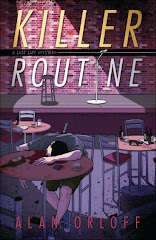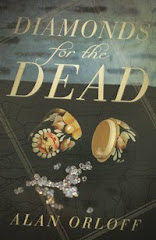Do you read reviews? Reply to them? Review the works of other writers?
All reviews are not created equally, so for the purposes of this post, I’m going to divide them into three types, based on who’s doing the reviewing.
1) Professional, high-profile reviews (The four services: Kirkus, Publishers Weekly, Library Journal and Booklist; and major general and trade publications):
Reviews from these sources can matter, in several ways. First, getting a good review (starred or otherwise) can have a definite effect on books sold. People read those publications for a reason, and if your book gets good notice, they’ll be more likely to order and recommend your book. Also, these reviews can provide marketing material (blurbs!) for book covers and other promotional efforts. A complimentary pull-quote about your book from Kirkus (“The best book about talking walruses on the shelves today!!”) can give a boost to your marketing campaign.
Read them? I ALWAYS read reviews from these sources (even if an author wouldn’t want to, their publicist would bombard them with emails about the reviews).
Reply to them? Never.
2) Less well-known publications, bloggers: These types of reviews can also be helpful, both in terms of generating positive word-of-mouth (influencing sales) and for use in marketing, but a lot depends on the individual source/reviewer. The vast majority of these reviewers are very professional, but once in a while you might run across one with a particular agenda. Or a grudge. Or a bizarre way of looking at the world (and your book!).
Read them? Yep, I usually read these (if I know about them, of course), but I’m always watchful for those reviewers who seem to have an axe to grind or who are just out to impress their own blog readers with their super-snarky musings.
Reply to them? I’ll sometimes thank the reviewer (if I know their name) for taking the time to read my book and offer a thoughtful review, but I NEVER make specific comments about the review itself. People are entitled to their opinions, and that’s one of the things that makes this country great (along with 24-hour donut shops).
3) Random Internet people (on Amazon, Goodreads, LibraryThing, etc.): If you’ve ever surfed these sights (and really, who hasn’t?), you’ll know how, um, uneven reviews can be here. Most are reasonably fair and honest reactions to the books they’ve read. But there are some reviewers (a not insignificant number), who use these reviews to vent or try to show their superiority or to exhibit their wit or to demonstrate their need for stronger medication. Actually, these reviews can be quite entertaining (as long as it’s not your book they’re reviewing—then it’s slightly less entertaining).
Read them? I admit that I usually read them, but I don’t give them much weight. When it comes to reviews from the masses, I look for general trends. A hundred mostly-positive reviews outweigh that one-star, “my dead great aunt could write a better book” outlier.
Reply to them? Although sorely tempted at times, I NEVER respond to an Amazon review. Never. Only bad things can come from that. Really bad things. I’m not kidding. Just say no. (I’m talking to you, writers!). Move along, move along, nothing to comment on here.
Do I review other writers’ work? Not anymore. I stopped leaving reviews a few years ago, mostly because of guilt. I’d feel guilty that I couldn’t read all my friends’ books, and then I’d feel guilty if I wanted to leave a 4-star review (instead of 5 stars), and then I’d feel guilty about feeling guilty. And really, who cares what I think about a book anyway? So, no more reviews.
What say you? How much stock do you put in reviews, especially the “non-professional” ones?
(This entry is “simul-posted” on Criminal Minds.)






















